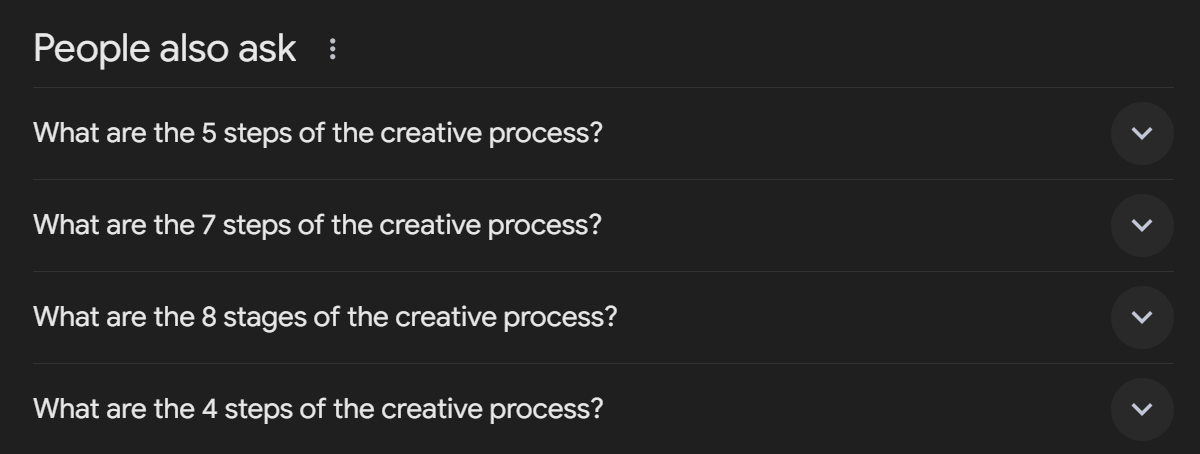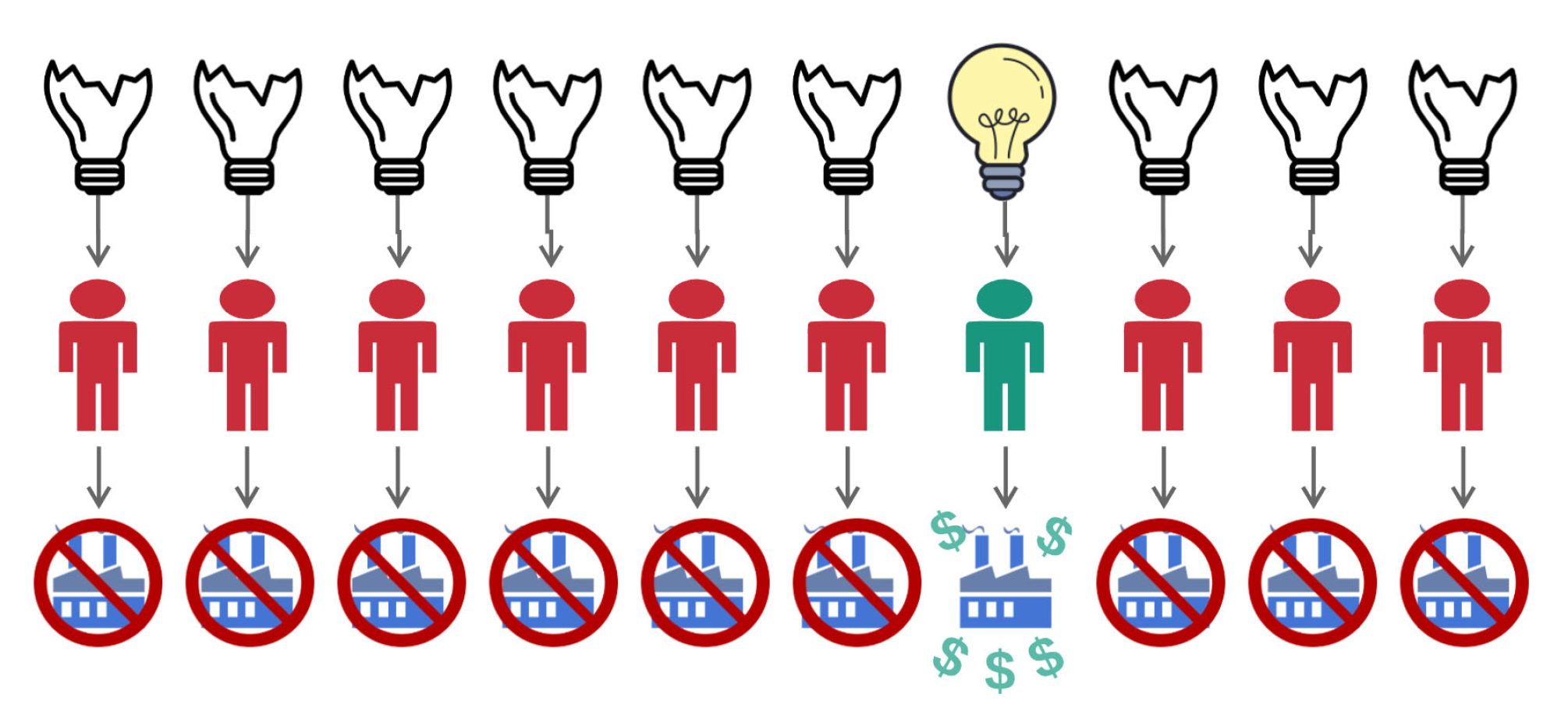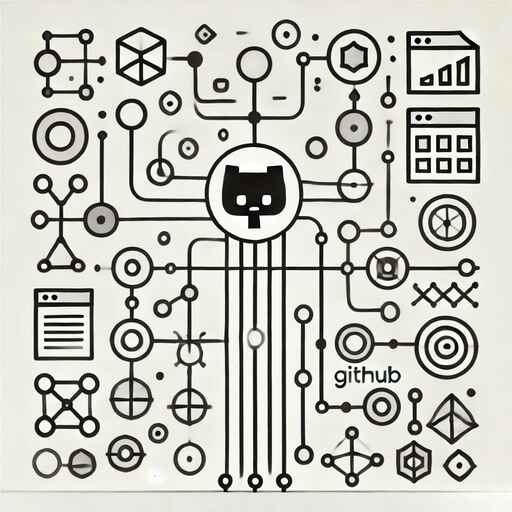Idea Discovery on GitHub

I’m fascinated by creative process: the road from idea to execution.
Want to see something funny? Let’s ask Google about the steps in the creative process:

Pretty much everybody agrees that the creative process HAS steps… but NOBODY agrees on what they are!
Having made that observation, though, I think there’s one step that stands out from the others just because it involves a kind of categorical shift. On one side of it, you’ve got a whole whiteboard full of ideas. On the other side, you’ve got a SINGLE idea that you’re actually going to execute.
For lack of a better term, let’s call this step Discovery:

You see the problem, right? You’ve got a bunch of ideas. You can’t execute on EVERYTHING. You HAVE to choose. Any resources (e.g. time & money) you commit to a BAD idea are resources you’ll NEVER be able to commit to any of the very few GOOD ideas in your pile.
If your ideas are significant, this is a super high-risk moment! So how do you choose?
Back in 2019 I had a pretty good idea: use very cheap social media ads to collect engagement data on ALL my ideas! In principle, this would allow me to make a data-driven decision about which ideas to execute. Here’s a presentation I gave back then describing an execution of this process and its outcome.
It worked pretty well, too… until I got shut down by literally every social media platform I tried it on! So a lesson learned there about hitching your wagon to social media. 🤣
Still, pretty smart idea, right? I just needed a better platform.
I let the idea hang for a while while I worked on other things, which in my case meant various software engineering projects. My approach to software engineering is highly generic, so I found myself publishing a bunch of useful bits and pieces as open-source projects on GitHub, where I and others could easily leverage them in future projects.
Because developers use it to host their portfolios, GitHub has developed into something of a social network for software developers. The metric of success on GitHub is the number of stars your projects have, which is a measure of how many other developers have found your work useful. Developers are a tough audience, so stars are hard to get.
I’ve got a few stars, and I’m proud of them! Earning a new one is always a rush.
An interesting thing about GitHub repos: they don’t ALWAYS contain code! In fact, if you look at today’s list of trending repositories on GitHub, the top ten include:
-
awesome-chatgpt-prompts - A collection of prompts for the OpenAI GPT-3 chatbot. (109k stars)
-
MLOps-basics - An introductory course on machine learning. (4.9k stars)
-
PayloadsAllTheThings - A list of useful payloads and bypasses for Web Application Security. (59.7k stars)
If you’re counting, that’s almost a THIRD of the top ten trending repositories on GitHub! And the star counts are (forgive me) astronomical. By way of comparison, my most popular repo has just 30 stars.
So a couple of weeks ago I had another idea: what if I started publishing my ideas to GitHub as well, each in its own repository? I could use the star count as a measure of how many developers found my ideas useful.
Also, as a container for a developing idea, a GitHub repo has some interesting features:
-
A README file that can offer a basic description of the idea, which can evolve as stars and refinements accumulate.
-
A file repository for artifacts & code that might accumulate as the idea develops.
-
A discussion forum where users can ask questions & offer feedback.
-
An issue tracker where users can report bugs & suggest enhancements.
-
A wiki that can accumulate more detailed documentation as the idea evolves.
Moreover, you can post a new idea with NONE of these features, except for a minimal README file that describes the idea. As the idea develops—IF it develops—you can add features as needed with just a couple of mouse clicks.
Now, to be fair, GitHub’s user base skews heavily toward software engineering. So it’s probably not an appropriate platform for non-technical ideas, and the feedback you get is more likely to represent the perspective & interests of product MAKERS than product USERS.
Also, if you already have a huge social media following someplace else, then you’re probably better off posting your ideas there. I think the fundamental concept still holds, though:
-
Idea discovery is a thing.
-
A good approach to idea discovery is to post EVERYTHING in front of an interested audience, and let engagement be your metric of market potential.
I just started this experiment, so right now I’ve just got a couple of ideas on my list. Plenty more in the backlog; I’ll post more as they occur to me or (more likely) as they jump back out at me from my own archives.
If you’ve got more interesting ideas floating around than you have time & resources to develop, you might benefit from some version of this approach.
If you try it, let me know how it goes!








Leave a comment